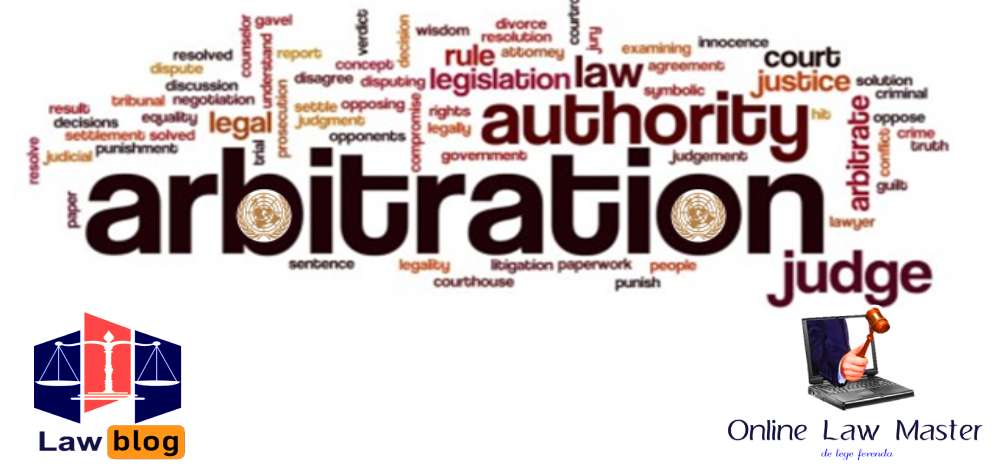
Modern commercial arbitration has deported the court proceedings as much as possible because it will adversely effect on relations as well as competitiveness between parties. However, arbitration should also need a minimum extent of interference by the court. Specially, when enforcing the arbitral award and appealing against arbitration proceedings and in regulating arbitrations the interference of court may be an important factor. How and what extent the court interference must be included in the act? It is necessary to ask that question because the much intervene of the court can be a bar to enshrine the concept of party autonomy in arbitration proceedings. The accepted role of the court in arbitration proceedings is limited only to supportive role.
Court Involvement
1. First Group – appointment, challenge and termination of the mandate of an arbitrator (articles 11, 13 and 14), jurisdiction of the arbitral tribunal (article 16) and setting aside of the arbitral award (article 34).
This set listed in Article 6
2. Second Group – court assistance in taking evidence (article27), recognition of the arbitration agreement, including its compatibility with court ordered interim measures of protection (articles 8 and 9), and recognition and enforcement of arbitral awards (articles 35 and 36)
Beyond the instances in these two groups, “no court shall intervene, in matters governed by this Law”. This is stated in the innovative article 5.
Article 5 – Extent of court intervention
In matters governed by this Law, no court shall intervene except where so provided in this Law.
Article 6 – Court or other authority for certain functions of arbitration assistance and supervision
The functions referred to in articles 11(3), 11(4), 13(3), 14, 16(3) and 34(2) shall be performed by … [Each State enacting this model law specifies the court, courts or, where referred to therein, other authority competent to perform these functions.]
Article 8 – The Arbitration Agreement
Require courts of contracting states to refer parties to arbitration, where there is a contract for arbitration unless it finds that the agreement is null and void.
While the issue is being pending in the court, arbitral proceedings may nevertheless be commenced or continued.
Campbell J. stated in Boart Sweden AB v. NYA Stromnes AB that “the very strong public policy of this jurisdiction [is] that where parties have agreed by contract that they will have the arbitrators decide their claims, instead of resorting to the Courts, the parties should be held to their contract….”
Article 9 – Interim Measures
Courts have power and therefore play a role in taking interim measures on application by the party in limited number of instances including an interim injunction or such other measures of protection as may appear to the court to be just and convenient
The Indian High court in Olex focas Pvt. Ltd v. Skoda Export Co Ltd, held that the Court have been vested with the jurisdiction and powers to grant interim relief in appropriate cases.
Courts assisting arbitration tribunals with sorting out interlocutory issues that are part and parcel of any dispute settlement institution and more so tribunals handling international commercial arbitration. Without court’s intervention in this respect, international commercial arbitration would not hold.
Article 11 Appointment of arbitrators
Parties are free to agree on procedure of appointing the arbitrator.
Article 11(3) – each party shall appoint one arbitrator, and the two arbitrators shall appoint the third arbitrator
(a) if a party fails to appoint the arbitrator within thirty days of receipt of a request to do so from the other party, or if the two arbitrators fail to agree on the third arbitrator within thirty days of their appointment, the appointment shall be made, upon request of a party, by the court
(b) in an arbitration with a sole arbitrator, if the parties are unable to agree on the arbitrator, he shall be appointed, upon request of a party, by the court
Article 11(4) – appointment procedure
If parties fail to act as required under such procedure, unable to reach an agreement, fail to perform any function entrusted under procedure;
Any party may request the court to take necessary measure, unless the agreement on the appointment procedure provides other means for securing the appointment.
Courts serve as a check on arbitrators, thereby preserving the integrity and confidence in the arbitral process.
Courts generally, exercise this supervisory power on good grounds only. For example, courts will generally refuse to uphold a challenge on bias, when the grounds for the objection were known but were not taken promptly. – The Island Territory of Curacao v. Solitron Device Inc. and Ghirardosi v. Minister of Highways.
Article 13 – Challenge Procedure
(1) Parties free to agree on procedure for challenging an arbitrator.
(2) Failing such agreement, party intend to challenge; within 15 days, send a written statement of the reasons for the challenge to arbitral tribunal.
Article 13(3) – if challenge under procedure agreed upon by parties or according to article 13 paragraph 2 is not successful: challenging party may request within 30 days after receiving the notice of rejecting the challenge, to curt. Such decision shall be subject to no appeal.
Article 14 – Failure or impossibility to act
If an arbitrator becomes de jure or de facto unable to perform his functions or for other reasons fails to act without undue delay, his mandate terminates if he withdraws from his office or if the parties agree on the termination. Otherwise, if a controversy remains concerning any of these grounds, any party may request the court or other authority specified in article 6 to decide on the termination of the mandate, which decision shall be subject to no appeal.
Article 16 – Competence of arbitral tribunal to rule on its jurisdiction
A plea that the arbitral tribunal does not have jurisdiction shall be raised not later than the submission of the statement of defence
Article 16(3) –
The arbitral tribunal may rule on a plea referred to in paragraph (2) of this article either as a preliminary question or in an award on the merits. If the arbitral tribunal rules as a preliminary question that it has jurisdiction, any party may request, within thirty days after having received notice of that ruling, the court specified in article 6 to decide the matter, which decision shall be subject to no appeal; while such a request is pending, the arbitral tribunal may continue the arbitral proceedings and make an award.
Article 27 – Court assistance in taking evidence
The arbitral tribunal or a party with the approval of the arbitral tribunal may request from a competent court of this State assistance in taking evidence. The court may execute the request within its competence and according to its rules on taking evidence.
Arbitral tribunal or a party with the approval of the arbitral tribunal may request from competent domestic court assistance in taking evidence. The court may execute the request within its competence and according to its rules on taking evidence.
Article 34 – Application for setting aside as exclusive recourse against arbitral award
(1) Recourse to a court against an arbitral award may be made only by an application for setting aside in accordance with paragraphs (2) and (3) of this article.
Article 34(2) – arbitral award may set aside by court only if,
(a) Party making application proof,
(i) Party to arbitration agreement incapacity, agreement is not valid under the law,
(ii) Not given proper notice of the appointment of arbitrator or arbitration proceeding or unable to present the case
(iii) Award beyond the scope of agreement,
(iv) Composition of arbitral tribunal or arbitral procedure was not according to the agreement
(b) Court finds that,
(i) The subject-matter of the dispute is not capable of settlement by arbitration under the law of this State; or
(ii) The award is in conflict with the public policy of this State.
Recognition and Enforcement
Arbitration is binding and final can only be affirmed by the courts
Under article 35(1) any arbitral award, irrespective of the country in which it was made, shall be recognized as binding and enforceable, subject to the provisions of article 35(2) and of article 36.

